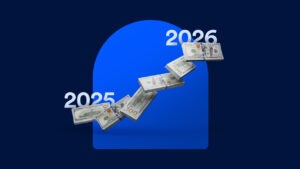Ask Bankrate: How can you protect investments from inflation?

Ask Bankrate is a recurring feature where Bankrate’s experts answer your financial questions. Visit this page for more information on how to submit your question. Click on a question here to jump straight to it. This week’s questions were answered by Greg McBride, CFA, Bankrate chief financial analyst.
Questions:
- How can you protect investments if inflation goes up?
- Why did my credit score drop after paying off debt?
- When is it worthwhile to refinance a mortgage?
- Should I pay off the mortgages on my rental properties?
- Should I tap my home equity to get cheap money?
- When will cash-out refinancing become more available?
- How long will the W recovery be?
Q1: How can you protect investments if inflation goes up?
If inflation goes up, what is your advice to protect our investments?
— Amy S.
The investments that will be most susceptible to higher inflation are low, fixed return investments like bonds and cash where inflation erodes your buying power. Bond prices will also get hit in a higher inflation environment, with the hit being more severe the longer the maturity. This is not to say that you want to avoid bonds and cash, because they play a vital role in your portfolio, but there are strategies that can limit the damage and offset the risk. For example, holding shorter-term bonds rather than longer term bonds limits the risk of price sensitivity when higher inflation sparks higher interest rates. Holding inflation-indexed bonds will preserve the buying power of your investment as the principal value is adjusted higher with inflation.
A well-diversified portfolio will also contain other asset classes that offer some protection from, or reduced sensitivity to, inflation, such as stocks, real estate and precious metals. Stocks tend to be a little more insulated from inflation as companies can pass along their higher costs by raising prices, which can enable them to maintain or even grow their earnings and dividends. Real estate holdings can protect buying power as residential real estate prices tend to rise more or less in line with inflation. Neither of these is a perfect hedge and in the short-term both stocks and real estate may prove sensitive to unexpected jumps in inflation. But over the longer term, they deliver returns that can better protect your buying power from inflation.
Precious metals are another common haven from inflation. However, since they pay no interest or dividend, prices often surge when fears are rising but can stagnate for longer periods especially if inflation is tame.
Q2: Why did my credit score drop after paying off debt?
I would like to know why my credit score is going down at a drastically high rate when all I am doing is paying off all my debt. In the past six months, I have paid off two auto loans, two credit cards and I’m making well above the minimum payment in my remaining credit card balances. In the same six months, my score has dropped nearly 100 points. Please help!
— Susan B.
To start, there isn’t just one credit score. There are a multitude of variations based on the credit reporting agency, the type of credit, and there are even two different companies whose models are widely used: FICO and VantageScore. But a drop of nearly 100 points as you say, should not be based solely on comparing an apple to an orange.
Have you pulled copies of your credit report recently? If not, I recommend doing so. Go to AnnualCreditReport.com to get your free credit report from each, or all, of the three major credit bureaus: Equifax, TransUnion and Experian.
The importance of doing so is to verify that there is not any incorrect information on your credit report that is dragging down your credit score unbeknownst to you. If there is, you can dispute this through the credit bureau who will then contact the creditor/entity reporting the data, and they have to respond with proof of what they’ve reported within 30 days.
But what if everything on your credit report is hunky dory, why such a sharp drop in score? If, for example, you paid off those two credit cards and closed them out, this could hurt your score because now the amount of available credit is lower, and your remaining balances use a larger percentage of your available credit, making you look riskier. It’s somewhat counterintuitive, I know, that you would pay off credit cards and see your score go down. But to be clear, this isn’t due to the paying off of the credit cards but rather if you had closed them. Paying off debt is good. But closing out unused revolving lines of credit is something that can do more harm than good to your credit scores.
Paying off your auto loans may have left you with less of a mix of credit, which is a small factor in your score, but that shouldn’t cause such a large drop, so I suspect there is something else at play as noted above (incorrect derogatory information, closed out credit lines).
Q3: When is it worthwhile to refinance a mortgage?
How much do mortgage rates need to fall to make it worthwhile to refinance? Is 1 percent worth it?
— Carol
Yes, at that threshold it usually is. But given that everyone’s situation is different, here’s how to figure that out.
Figure out how much your monthly payment would go down by refinancing, and then divide that into the total cost of the refinancing. The answer is how many months it will take for that savings to recoup your costs. How does that match up versus how long you intend to be in the home? If you’re planning on moving in three years and it takes 2 1/2 years to break even, then it’s not. But if this is a place you intend to be for at least five years, then refinancing to a lower rate will more than pay for itself.
Q4: Should I pay off the mortgages on my rental properties?
I own several investment rental properties and carry mortgages on each. The APR on each range from 4.75 to 5.375 percent. I have cash that is currently not making any money and wonder if it would be smart to simply pay off the loans. I understand that this will increase my passive income and will be subject to additional taxes at year-end. Any insight from the experts would be appreciated.
— Joe R.
In addition to having one less expense to offset the rental income as you had noted, consider what this will do to your cash position. It may well be the best use of idle cash to dispatch of those loans, especially if you can’t refinance them in a way to generate meaningful savings. But if doing so is going to leave you short on cash for emergencies, repairs and maintenance to the properties, or the ability to cover regular costs in the event of a vacancy or two, then it’s wise to hold back a bit. Keep enough cash on hand to cover those contingencies as well as the unexpected (job loss at your day job, for example).
If you have ample cash above and beyond the necessary reserves, consider if you want cash at the ready to pounce on any opportunities that should present themselves — a fellow landlord needs to unload property in a hurry and you can scoop them up at a steep discount, for example.
But after covering all those bases, if there are no better uses for your surplus cash, then paying off some, or all, of that mortgage debt would be a prudent step.
Q5: Should I tap my home equity to get cheap money?
I have a lot of equity in my co-op. Should I refinance and take out more equity to have access to cheap money?
— Louise C.
Taking cash out while doing a refinance is something that some lenders have shied away from in the current environment, while the others are charging a higher rate for doing so. And the higher rate applies to the entire balance, not just the amount of cash being withdrawn. That higher rate may negate much of the benefit of refinancing in the first place, and that cheap money you seek may not end up being so cheap, or as cheap as you’d hoped.
Aside from rate, there are other considerations. What do you intend to do with the money? How much are you looking to withdraw? How much will you owe relative to the value of the property if you do? I wouldn’t recommend withdrawing cash just for the sake of withdrawing it because there are significant closing costs, plus interest charges, and you don’t want to subject yourself to private mortgage insurance if the resulting loan balance exceeds 80 percent of the home’s value.
Q6: When will cash-out refinancing become more available?
We wanted to do a cash-out refinance and use the funds for home improvements to our 20-year home. When will this option come back?
— Cherre
The option has diminished in availability but hasn’t gone away altogether. The reality is that the lenders that do offer cash-out refinancing will charge a higher rate to take cash out than if you were just refinancing your existing balance. And that higher rate applies to the entire balance, not just the cash you’re taking out.
Needless to say, even where still available, the pricing really throws cold water on the idea of taking cash out. The path the economic recovery takes and what we see if mortgage delinquencies and defaults will dictate when we see a more ‘normal’ environment for cash-out refinancing — with more lenders and better pricing — but suffice it to say, I expect it to be more than 12 months from now.
Q7: How long will the W recovery be?
What is the timeline of the W recovery?
— Louise C.
It will be prolonged. Think years, not months. Even the Federal Reserve — which I have found to always be a bit too optimistic — doesn’t expect the economy to get back to the same size as it was at the beginning of 2020 until the end of 2022. So that gives you an idea. It could be sooner if things go better than expected, or it could take even longer if they don’t.
Why we ask for feedback Your feedback helps us improve our content and services. It takes less than a minute to complete.
Your responses are anonymous and will only be used for improving our website.



